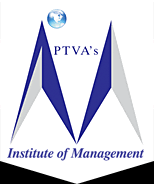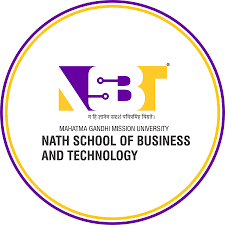MMS in Finance can lead to rewarding careers in banking, investment, and financial management. Graduates often find opportunities as financial analysts, investment bankers, and finance managers, enjoying competitive salaries and career growth prospects.
Future Scope & Benefits of MMS in Finance
A Master in Management Studies (MMS) with a specialization in Finance is a prestigious and career-oriented program that equips graduates with the knowledge and skills to excel in the dynamic world of finance. In this comprehensive guide, we will delve into the future scope and myriad benefits of pursuing an MMS in Finance, exploring the various career opportunities and advantages it offers.
MMS in Finance Future Scope
Financial Analyst: One of the most common career paths for MMS in Finance graduates is becoming a financial analyst. Financial analysts assess investment opportunities, analyze financial data, and provide insights to support investment decisions. They work in various sectors, including banking, investment firms, and corporate finance.
Investment Banking: Investment banking offers lucrative opportunities for MMS in Finance graduates. They can work as investment bankers, assisting companies in raising capital, mergers, acquisitions, and financial advisory services. This role involves complex financial modeling, risk analysis, and strategic planning.
Corporate Finance: Many graduates pursue careers in corporate finance, working directly for organizations. They manage financial planning, budgeting, and risk management, ensuring the financial health and growth of the company. Roles include financial controllers, treasurers, and finance managers.
Portfolio Management: Portfolio managers are responsible for managing investment portfolios on behalf of individuals or institutions. MMS in Finance graduates can excel in this role by making informed investment decisions to maximize returns while managing risks.
Risk Management: Risk managers assess and mitigate financial risks within organizations. They play a crucial role in identifying potential financial threats and developing strategies to safeguard assets and investments.
Financial Consulting: Graduates can work as financial consultants, either independently or within consulting firms. They offer expert financial advice to clients on various matters, including investment, tax planning, and financial management.
Private Equity and Venture Capital: The world of private equity and venture capital offers exciting opportunities for finance specialists. Graduates can work for private equity firms, where they evaluate investment opportunities in private companies and drive growth initiatives.
Financial Technology (FinTech): The finance sector is increasingly embracing technology. MMS in Finance graduates can work in FinTech companies, contributing to the development of innovative financial products and services.
Teaching and Academia: Some graduates choose to enter the field of education and academia, becoming professors or researchers in finance-related subjects. They contribute to the next generation's understanding of finance and economics.
MMS in Finance Benefits
Career Versatility: An MMS in Finance opens doors to a wide range of finance-related careers, allowing graduates to explore roles that align with their interests and strengths.
Lucrative Salaries: Finance professionals often enjoy competitive salaries and bonuses, especially in roles like investment banking, portfolio management, and private equity.
Global Opportunities: Finance is a global industry, and finance specialists have the chance to work on international projects, interact with diverse clients, and understand global financial markets.
Analytical Skills: The program hones analytical skills, including financial modeling, data analysis, and risk assessment, which are highly transferable to various sectors.
Critical Thinking: Graduates develop critical thinking abilities, enabling them to solve complex financial problems and make informed decisions.
Stability and Job Security: Finance is a resilient field, and professionals are often in demand, providing a sense of job security even in uncertain economic times.
Networking: Graduates build valuable professional networks, connecting with peers, mentors, and industry experts, which can lead to mentorship and career opportunities.
Contribution to Economic Growth: Finance professionals play a pivotal role in economic growth by facilitating investment, capital allocation, and financial stability.
Continuous Learning: The finance landscape evolves, offering opportunities for ongoing learning and professional development.
 2 Years
2 Years
 Post Graduate
Post Graduate
 Management
Management
 Full Time
Full Time













 back
back

